








510.981.5360 Migrant



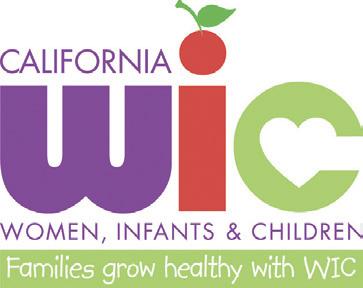


















510.981.5360 Migrant












The 2024/25 edition of The East Bay Private School Guide is available and is filled with information on how to help parents navigate the process of finding the best private school for their child. This guide has information on prioritizing what are the most important factors for your family, determining what type of school to consider, navigating



By Adina Kisilinsky, Children’s Hospital Injury Prevention Department
October is Safe Sleep and Sudden Infant Death Syndrome (SIDS) Awareness Month, so we wanted to review what SIDS and safe sleep are, how to reduce risk for SIDS, and what parents can do to ensure safe sleep.
What is Sudden Infant Death Syndrome (SIDS) and Sudden Unexpected Infant Death (SUID)
SSUID is used to describe a sudden and unexpected death of a child under the age of 1 where the cause of death is not clear until after investigation. SIDS is an unexplained infant death occurring during sleep, often attributed to suffocation or entrapment causing lack of oxygen. SUID is a more general term which encompasses SIDS and any other deaths from unknown causes. While SIDS can occur any time during the first year of life, it is most common in infants up to 6 months. Infants are at risk for two primary reasons. First, their mobility is still very limited, so they are not able to free themselves if their face and airway becomes blocked with blankets or if they end up face down. Second, infants have an immature respiratory system and a slower arousal response to awaken and respond, meaning if they get too warm because they are sleeping too close to a parent or pillow, it can cause rebreathing carbon monoxide and they may not even wake up to cry out before it is too late.
How can we prevent SUID/SIDS?
There are 3,400 babies that die from a SUID related cause each year in the United States. Not all occurrences of SUID are preventable, however there are several steps parents and caregivers can take to significantly reduce a baby’s risk. One of the key elements is ensuring a safe sleep environment for your baby.
admissions tours, shadow days, interviews, needed exams, tuition assistance and writing a great essay. Use the month-by-month guide to keep your family on the admissions track to getting accepted to the school of your choice. Available in print and online at www. ParentsPress.com – just click on “Our Magazines” tab.

Here are 4 things you can do to make sure your baby is sleeping safe:
1Crib: Make sure your baby’s crib has a firm mattress with a fitted sheet. Never use blankets, pillows, or bumper pads and make sure nothing is covering the baby’s head. The crib should also be free of small objects that the baby could get near or in their mouth, such as toys or stuffed animals
2Position: Your baby should always sleep lying flat on their back until at least 1 year of age. Do not prop them on their side or place them face down.
3 Sleepwear: Dress your baby appropriately for the weather, do not overdress them. Additionally, only dress the baby in a wearable blanket, onesie, or other sleep clothing for infants.
4 Room Environment: Babies should never sleep in an adult bed, on a couch, or on a chair; neither alone nor with someone. Babies should always sleep in a crib or bassinet, not in bed with the parents or caregivers. The American Academy of Pediatrics recommends room sharing for the first 6 months, but never bed sharing between a baby and their parents or caregivers. Instead, bring the crib or bassinet into the room.
Monthly January through June
Receive camp information and learn about more than 75 day and overnight camps as well as summer programs for all ages and interests.
Click here to register and receive access to regularly updated online camp expo materials

It may be the most wonderful time of the year, but that doesn’t stop holiday related injuries. Here’s how you and your children can have a fun and safe season.
Decoration Dos
Keep the trimmings safe by watering real trees regularly to avoid fires (or consider a fake tree) and place breakable ornaments and ones with metal hooks up top, with kid-friendly ones below. Check lights for exposed wires, loose connections or broken sockets. Batteryoperated candles are a safer alternative to the real variety, which present a fire hazard.
Festive Fetes
If children are helping with the holiday cooking, never leave the stove top or oven unattended when they are present. Prevent burns and spills by using the back burners of your stove. Turn pot handles away from the edge. Poinsettias, holly and other plants commonly used as decorations can be poisonous if ingested. Keep the National Poison Center number (1-800-2221222) easily available.
Toy Tips
Keep gifts age appropriate when purchasing a toy or game. Don’t forget safety equipment, such as a helmet and pads, for new bikes, scooters, skateboards or skis. Keep an eye on small parts that are easy to swallow, especially button batteries which are included in most electronic toys. Check websites, such as the Consumer Product Safety Commission (cpsc. gov), for updated recall information.

During the winter months emergency departments often see an increase in children presenting with respiratory disorders. Some of the common respiratory illnesses seen in children are asthma, bronchiolitis, croup and pneumonia. While it can be heartbreaking and frightening for a parent to see their child not feeling well, an infant or young toddler with a respiratory illness can be extra worrisome for parents since children this age can’t tell you what is wrong.
For some children with asthma,

For some children with asthma, the return of cooler weather or catching a cold can make their symptoms more difficult to control.
the return of cooler weather or catching a cold can make their symptoms more difficult to control. Bronchiolitis is caused by viruses and usually affects infants and toddlers. Bronchiolitis can develop into coughing, wheezing, and difficulty breathing.
If your child has a harsh voice, barky cough and noisy breathing he or she may have croup. Croup is also caused by viruses and affects young children. If your child is diagnosed with pneumonia antibiotics will be prescribed if the infection is caused by bacteria.
Your child should see their pediatrician for any concerning respiratory symptoms, but here are some of the reasons to seek care immediately:
• If you can see your child’s ribs or if the chest or stomach is being pulled in while breathing
• If there are any abnormal noises, such as grunting, while breathing
• If there is a blue or gray color around your child’s lips or on their face or finger nails
• If they are drooling more than normal
• If they are not able to swallow
A child that has been diagnosed with a respiratory infection may require more fluids than usual to prevent dehydration if they have a fever or are breathing faster than normal. If your child is diagnosed with a bacterial infection, he or she will be prescribed antibiotics. Be sure to give your child their medication as directed, for the prescribed amount of time. Avoid over the counter cough/cold medications as these are not safe for children.
Your child may not be acting like his or her normal self while they are sick, but with a little time and supportive care they will be back on their feet and running around! Y


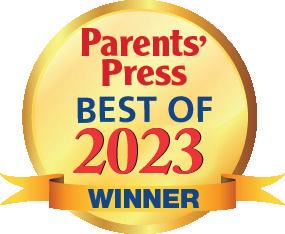
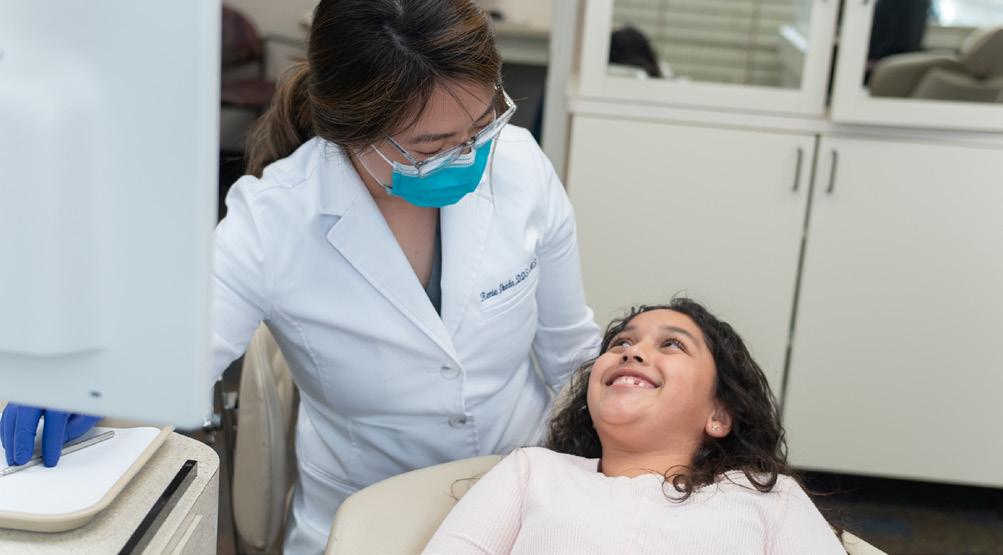


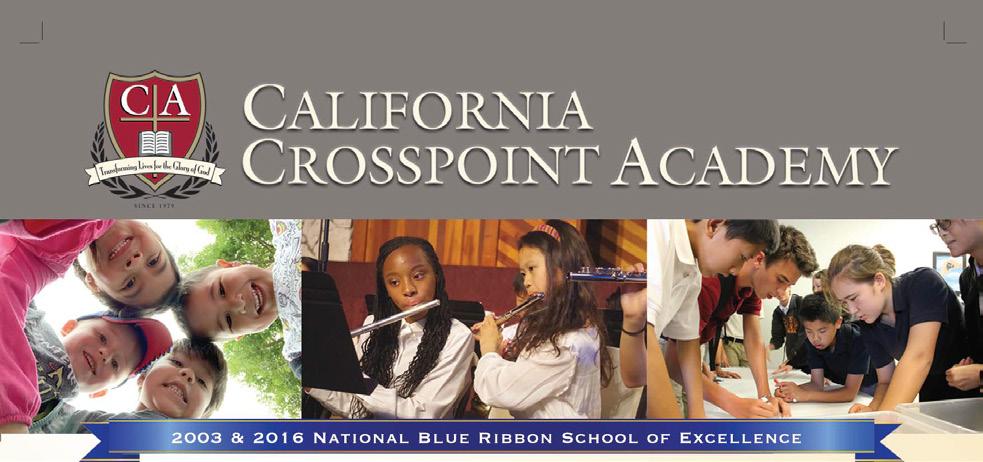




By Elena Epstein, Director of the National Parenting Product Awards

Learn how to form lowercase and uppercase letters with this multisensory pad. Filled with a thick, movable gel, this provides a great tool for kids to practice letter formation while strengthening their finger muscles and developing fine motor skills. $19.99, ages 2+, www.hand2mind.com
Handcrafted with exquisite details. Each doll comes nestled in a tiny home adorned in beautifully hand painted watercolor wildflowers. Each doll provides 10 meals to kids in need. $44, ages 3+, www.cuddleandkind.com


Features 162 of the best passages from historical and modern classics, including “Where the Wild Things Are,” “The Hobbit” and “The Bridge to Terabithia.” Divided into 18 themes like ‘being different”, “forgiveness” and “curiosity.” Includes fresh illustrations that bring each quote to life. $12.99, ages 6+, www.read.sourcebooks.com
NAPPA Awards has been celebrating the best in family products for 34 years. For more product reviews and gift ideas visit nappaawards.com
A fast-moving matching electronic handheld game. Can you master the moves to beat the blocks? Flip to find the color and slide to match the lights. Challenge yourself or play with friends. $19.99, ages 4+, www.moosetoys.com


The gorgeous mermaid music and light-up toy features lots of ways to play. Press on the shell necklace to hear fun sound effects and the theme song from Disney Junior’s hit show, Ariel. In the tub or at the pool, immerse Ariel’s tail in water. $39.99, ages 3+, www.justplayproducts. com
Featuring classic-inspired Leonardo driving his rugged Buggy, this RC vehicle is geared up for actionpacked adventures. Built for stunts and excitement + designed to make sharp turns, buggy roll overs, and has the ability to land back on its wheels to keep the action going. $34.99, ages 6-11 years, www.teenagemutantninjaturtles.funrise.comyears Y
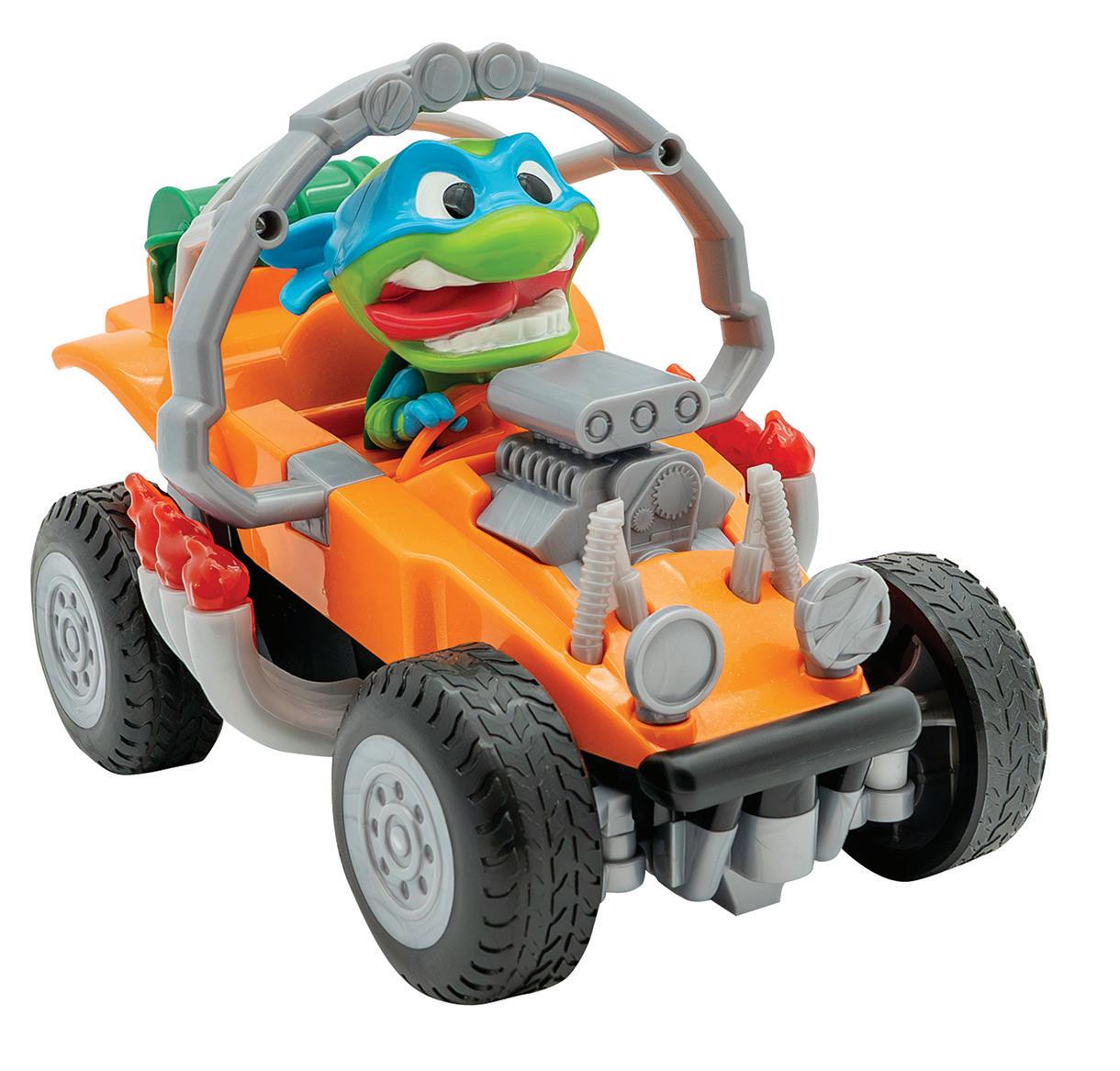

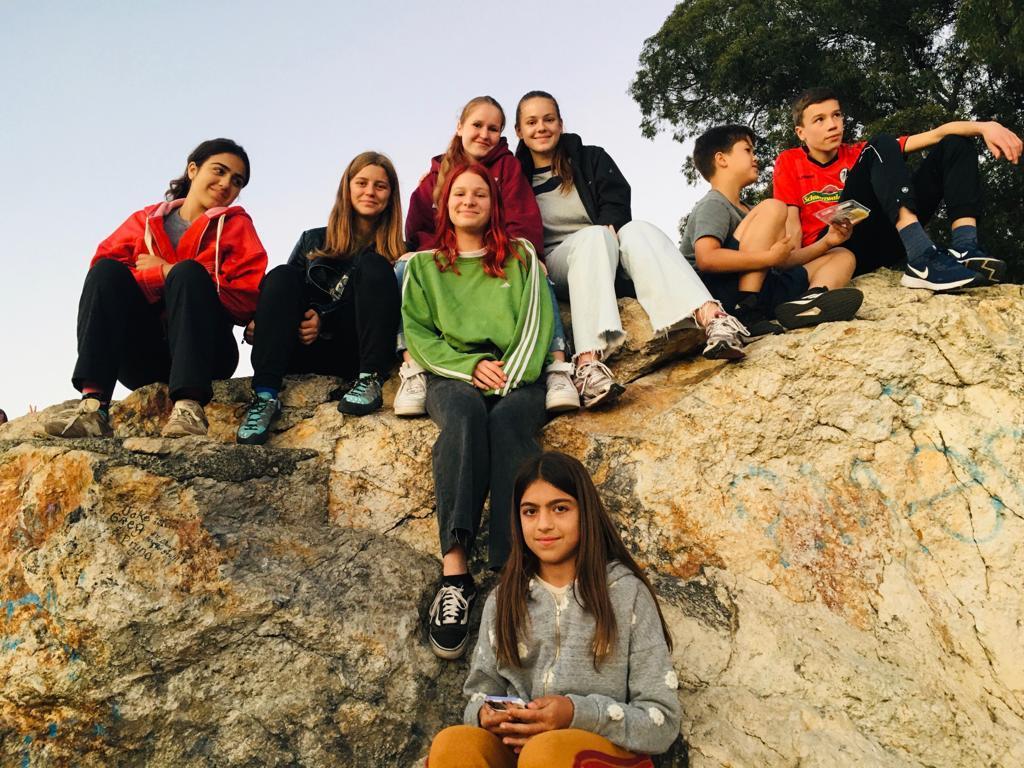

The East Bay German International School (EBGIS) offers exceptional academics and German immersion from preschool through grade 8. Our East Bay International High School (EBIHS) is a college preparatory high school offering the International Baccalaureate (IB) Diploma Programme (DP). Often referred to as the gold standard in high school education, the IB is highly regarded by universities in the United States and worldwide.
We provide a dynamic learning environment and a truly global perspective, anchored by our European educational approach. Our small size and low student-teacher ratio (7:1) enable our highly trained international faculty to provide an individualized educational experience to each student.
Our International High School is open to all students in grades 9-12. EBIHS offers multiple language tracks with beginner to native-speaker-level language and literature courses in German, French, and Spanish as well as introductory Mandarin. All other EBIHS instruction is in English.
No knowledge of German is required for students entering our preschool or kindergarten, nor for our high school. Talk with us about individualized language support for elementary and middle school students.

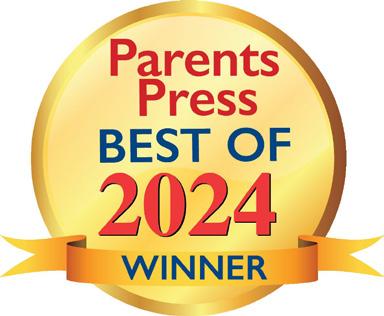
Open House
October 19, 2024
January 25, 2025 10 am - 2 pm
High School Campus Visit
September 23, 2024 9:40 am
Online Info Sessions for all programs. Register at: http://www.ebgis.org/ admissions/visit-us 1070 41st Street
Emeryville, CA 94608 (510) 380-0302 admissions@ebgis.org






Why “Know
is more important than Why “Know Thyself” is more important than
It seems that more than studying what sounds lucrative, studying what we love and excel in (and putting in the time) will lead to greater financial success, sometimes in unpredictable ways.
Business has risen to become one of the most popular undergraduate majors in the US. The practical student thinks, Money is what I want, and money comes from business. One of my students told me he would major in whatever would most likely lead to a high-salary career. While I have always discouraged a purely resource-driven approach to choosing a college major and planning a career, if I can’t change the source of the motivation, I’d say consider Oprah Winfey, who majored in speech communications and performing arts at Tennessee State; or Brené Brown, the thought leader and speaker with a net worth of close to $5 million who majored in Social Work; or Jack Dorsey, the cofounder of Twitter with a net worth of $4.5 billion who was a masseur and even dabbled in fashion design. It seems that more than studying what sounds lucrative, studying what we love and excel in (and putting in the time) will lead to greater financial success, sometimes in unpredictable ways.
The first part—finding what we love — is relatively easy but fairly misguided. What
By Alex Ellison
grabs our attention will change with age, exposure, relationships, and what’s streaming.
The second part – finding what we excel in — was a more difficult and expensive task until the advent of reliable, online aptitude assessments. Once we have exposed these raw aptitudes in ourselves, we can rely on them through time, changing economies, and different living situations. They become a compass.
It’s not just that I want my students to enjoy their future studies; I don’t want them to direct so much time and resources away from their natural gifts, making school, life, and work so much more of a slog than they need to be. Just as genetic testing is helping many people make smarter choices about their health before they’re sick, I think aptitude discovery can help people focus on college and career wellness before they need to be put on life support.
It’s why when I guide young adults, I don’t start by helping them choose specific majors; I encourage them to first get acquainted with their aptitudes through one of assessments available at www.youscience.com.
The old
“Know Thyself” axiom may be a cliché commandment, but it remains a necessary step in discovering our life’s work.
Knowing whether you are naturally a more 3D or Abstract thinker is the difference between choosing architecture or real estate development, mechanical or industrial engineering, psychiatry or psychology. The former makes sense of the world in spatial terms, while the latter does so more abstractly.

Inductive Thinkers easily spot connections, are comfortable filling in the missing pieces, and can come to conclusions based on the available information. They love the “hunt” of solving for unknowns and treading unfamiliar territory. Their opposites, the Fact Checkers, excel when they have complete information, and they will not give you a premature answer; they’ll keep

digging and mulling over things until they’ve collected enough data points. The former may choose archeology and anthropology, while the latter may prefer medical technologies and accounting.
Perhaps most important to our satisfaction in what we’re studying and doing is the degree to which we wish to specialize. While Generalists can easily shift between a broad range of tasks, oversee a diverse team of experts, and hold an objective eye on their work and the world, specialists thrive when they can “go deep,” focus on their craft, and maintain some coveted expert knowledge in their field. Generalists are happy studying management or engineering, while specialists want to study African Studies or 17th Century Literature. It might also mean the difference between eventually choosing family medicine or podiatry.
The old “Know Thyself” axiom may be a cliché commandment, but it remains a necessary step in discovering our life’s work, even in—or especially in—our hyper practical, rational society that can often lead us to make decisions based on every possible factor except what we are uniquely suited to do. But recognizing our aptitudes is only the first step; experience and exposure have to follow. How else do you discover that medicine is not all Grey’s Anatomy and criminal justice isn’t all CSI: Miami? Y

Alex Ellison runs a college and career guidance practice, Throughline Guidance, which serves clients around the globe. She writes and lectures extensively on the subject of careers and college readiness and has been a featured speaker at SXSWedu and TEDx. Her forthcoming book, Your Hidden Genius: The Science-Backed Strategy to Uncovering and Utilizing Your Innate Talents hits shelves in January 2025 and is available for preorder now. She lives in Santa Cruz, California.

“Ugh, I’m out of food coloring!” I cried, peering into the cupboard. It was the last thing I needed to finish the Christmas cookies.
Sigh. I’d already made enough runs to the store that I was on a first name basis with Sue, the cashier from checkout lane 6.
That’s when I turned to my teenage son, 17, sitting on the couch looking at his phone.
“Heeeeeeey,” I said. “Could you go get me some food coloring?”
“Sure,” he replied. He sprang up, grabbed the car keys, and took off.
It was like I had my own Christmas elf! Which was a pretty awesome perk of celebrating the holiday season with older kids.
By Katy M. Clark

Indeed, as my teenage son and his sister have shown me as they’ve grown older, there are plenty of reasons why Christmas with teens rocks.

A little bit of financial independence. You know what my son said when I offered him $5 to pay for the food coloring? “That’s okay, Mom. I have money.” Now that’s a Christmas miracle!

Teens are sturdier. I no longer fear that my kids will break the heirloom ornaments, topple over while helping with the outdoor lights, or drop the china when setting the table for Christmas dinner.

Their palates have matured. Gone are the days of picky eating, like the Christmas dinner when my preschooler ate nothing but rolls and brown sugar meant for the sweet potatoes. As a teen he’ll eat almost anything. (Okay, he still loathes onions!)

Teens are more helpful with cooking and baking. They can chop the veggies and make the gravy. They can whip up extravagant dishes and desserts, whether because they are taking culinary classes or just want to emulate something they saw on TikTok.


Better yet, teens can clean the kitchen all by themselves when they are done. They don’t need supervision or nagging. Well, maybe a little bit of nagging.
I am no longer in charge of dressing them for the weather. Yup, gone are the days of wrangling them into winter gear a la Randy’s mom in A Christmas Story. Of course, I hope my teenage son wears a coat, but if he doesn’t, that’s on him, not me.

Big kids care about tradition. Whether it’s putting out the sock snowman they made in first grade or using Grandma’s recipe to make molasses cookies, teens genuinely appreciate tradition and connection with loved ones and holidays in the past.


Teenagers are still kids at heart, just bigger. They want to leave a plate of cookies out for Santa. They pile in the car when it’s time for our family to drive around and admire holiday lights. Their faces still light up with joy when opening gifts.
As the mom of teens, I am liberated from the Elf on the Shelf. We had a good run, but nowadays I can sit back (a little bit!) and relish the real magic of the season, which is simply being together.



And I love being together with them. This is in stark contrast to the days when they were younger, we’d all be stir crazy by New Year’s and I couldn’t wait for school to start again. With teens I wish time would slow down so I could linger in these special days with them.

Christmas with teens rocks because I no longer fret so much about the gifts. I don’t stress about hiding presents or scramble to obtain that deeply desired yet widely unavailable toy. (Do not ask me about the lengths to which I went to get my kids Zhou Zhou pets one year!)

Their taste in holiday shows and movies is more palatable. Sure, I enjoyed watching classics like Frosty the Snowman when they were little. But not thirteen times in a row. Now my teenagers are just as excited as I am to watch grown-up movies like The Holiday or Die Hard that they never would have sat through as tots.



Teens can stay up late. Whether it’s watching our favorite movies together or going to the midnight Christmas Eve service at church, gone are the years when I had to hustle them to bed by a certain hour.
Teens sleep in on Christmas morning. They no longer rouse the entire household at the crack of dawn to open gifts. Christmas morning with big kids has a decadent, tranquil feel.
Teens grasp the meaning of Christmas in a deeper way. I love that we have profound talks about faith this time of year. It touches my heart, too, when I see them donate jackets to the homeless or put their own money in the red kettles.


Teens are happy to receive clothes as gifts, too. Remember the pouty faces or whiny voices as youngsters when they opened gifts and discovered clothes? Now my son is stoked to get a hoodie and my daughter is giddy to see duds from her favorite store.

And if by chance my teens are disappointed by a gift? They are mature enough to handle it. It’s not like that time my three-year-old ran from the room crying when a toy did not work. I think that year’s very vocal disappointment still lingers in the ether.

Teens give better gifts, too. I know, I know, gifts are not the real meaning of the season. But while I treasure the drawings and painted rocks from yesteryear, it touches my heart when my teens give me a book, they knew I wanted to read or a scarf they saw me admire.

They can wrap gifts themselves. My teenage daughter is masterful when it comes to using paper, tissue, and ribbon. She’s a big help with all the wrapping if I’m busy or just plain tired of doing it all myself. Plus, I don’t worry about her running with scissors anymore!

And the 20th reason why Christmas with teens rocks?

Because it is still the most wonderful time of year, no matter if they are five or fifteen years old. And it’s an amazing gift every day, but especially at Christmas, to be the one that my teens call Mom. Y
Katy M. Clark is a writer and mom of two who


By Sarah Lyons
The holiday season is here again and many parents find themselves scrambling to shop for all of the important people in their lives. Shopping for the perfect gift for your kids can be stressful. Gift giving can be full of joy but oftentimes what kids want and need is their parents time over a pile of gifts. This year try prioritizing presence over presents. This slight change in perspective can relieve this stress and give your kids the gift of memorable experiences that last longer than the thrill of a new toy.
Sharing an experience can be a great alternative to giving a physical gift. Find something your family enjoys doing together and make it into a surprise. Some ideas may include taking a trip, attending a concert, visiting a museum or a local attraction, or eating at a special restaurant. Most importantly, you will be enjoying the activity as a family. Experience gifts promote family bonding and create memories that will last a lifetime.
Time spent together has great value for kids. When you are shopping for gifts this year, look for items that promote family time such as games, puzzles, a cookie baking kit, sports equipment, or
crafts. Take the time to play and spend time together. You may find that these activities will become family traditions you return to every year.
Taking time to serve those in need not only brings joy to those who receive help but also to those who offer it. Kids who volunteer regularly have a better appreciation for the blessings they have in their own lives and are more likely to be generous and serve others as they become adults. Ask your kids what needs they see in the community and decide how your family would like to serve. Some ideas may include a coat or food drive, serving meals at a shelter, adopting a family for Christmas, raking leaves for an elderly neighbor, sending holiday cards to veterans, baking and delivering cookies to neighbors, or picking up litter in your community. Choose what fits your family’s time and budget and make it a priority.
Has your child always wanted to try a particular activity or sport but the cost of lessons was not in the budget? Consider purchasing this gift for your kids. This will give them the opportunity to try something new and will also let them know you were considering their
interests. Families may also want to purchase a membership to a local zoo, amusement park, community center, or museum. This will be something the family can enjoy together over the year ahead.
You don’t have to get rid of gift giving all together, but being intentional about buying things that you can enjoy as a family and taking the time to purchase a few gifts that are really special to your child will help them see the importance of presence over presents. Your child will likely agree that the best gift is time spent with you.
Sarah Lyons is a mom of 6 and has been published in PregnancyandNewborn Magazine,CreativeChildand over 150 other parenting publications.




BERKELEY
Bayhill High School 9-12
Open House
January 25, 2025 - RSVP 1940 Virginia Street www.bayhillhs.org
The Berkeley School PS - 8
Virtual Open House
December 18, 2024 - RSVP 1310 University Ave www.theberkeleyschool.org
The Crowden School K-8
Open House
December 4, 2024 @ 9:15 am
December 13, 2024 @ 9:30 am Group Tours
December 11, 2024 @ 9:30 am
January 8, 2025 @ 9:30 am
January 16, 2025 @ 10:00 am
Sneak Peak
January 12, 2025 @ 10:30 am 1475 Rose Street www.crowden.org
Shu Ren International School Virtual Info Session
December 6, 2024 @ 6:30 pm
Elementary Class Tours
December 19, 2024 @ 10:30 am 2125 Jefferson Ave https://shurenschool.com
CASTRO VALLEY
Redwood Christian Schools
MS/HS Shadow Days
January 10, 2025 @ 7:45 am 4200 James Avenue www.rcs.edu
CONCORD
Orion Academy 9-12 Open House
February 1, 2025 @ 9:30 am 1868 Clayton Road www.orionacademy.org
EL CERRITO
Prospect Sierra School (K-8)
Online Info Session
ES - Dec. 2, 2024 @ 9:00 am
MS - Dec. 3, 2024 @ 9:00 am
MS - Dec. 12, 2024 @ 9:00 am
ES - Jan. 9, 2025 @ 9:00 am
MS - Jan. 15, 2025 @ 9:00 am Campus Tours
MS - Dec. 3, 2024 @ 9:00 am
MS - Dec. 9, 2024 @ 9:00 am
ES - Dec. 10, 2024 @ 9:00 am
ES - Dec. 13, 2024 @ 9:00 am
ES - Dec. 16, 2024 @ 9:00 am
MS - Dec. 18, 2024 @ 9:00 am
ES - Jan. 10, 2025 @ 9:00 am
ES - Jan. 13, 2025 @ 9:00 am
MS - Jan. 14, 2025 @ 9:00 am 2060 Tapscott Ave www.prospectsierra.org
EMERYVILLE
East Bay German International School PS - 8
Preschool Admissions Application Due February 9, 2025 KG-8 Admissions Application Due
February 16, 2025 1070 41st Street www.ebgis.org
East Bay International HS 9-12 Admissions Application Due December 16, 2024 1070 41st Street www.ebgis.org
HAYWARD
Moreau Catholic HS 9-12
8th Grade HSPT Workshop
December 7, 2024 @ 9:00 am Applications Due January 6, 2025 27170 Mission Blvd www.moreaucatholic.org
LAFAYETTE Bentley School 9-12
Upper School Webinar
December 5, 2024 @ 6:00 pm 1000 Upper Happy Valley Road www.bentleyschool.org
Contra Costa Jewish Day School FunDay Sunday
December 8, 2024 @ 10:00 am 955 Risa Rd www.ccjds.org
MORAGA
The Saklan School - PS - 8 Virtual Perspective Parents Panel
December 10, 2024 @ 12:00 pm Open House
January 16, 2025 @ 9:00 am 1678 School St www.saklan.org
OAKLAND
Aurora School K-8 K-5 Tours
December 6, 2024 @ 8:45 am
December 13, 2024 @ 8:45 am
January 10, 2025 @ 8:45 am
January 17, 2025 @ 8:45 am
Middle School (6-8) Tours
December 5, 2024 @ 8:45 am
December 12, 2024 @ 8:45 am
January 9, 2025 @ 8:45 am
January 6, 2025 @ 8:45 am 40 Dulwich Road www.auroraschool.org
Bentley School K-8
Lower School Webinar
December 3, 2024 @ 6:00 pm
Middle School Webinar
December 4, 2024 @ 6:00 pm
K-8 Open House
December 7, 2024 @ 9:00 am 1 Hiller Dr www.bentleyschool.org
Park Day School K-8 K-3 Tour
December 5, 2024 @ 8:45 am
December 12, 2024 @ 8:45 am
December 19, 2024 @ 8:45 am
January 16, 2025 @ 8:45 am K-8 Open House
December 14, 2024 @ 10:00 am
Upper Grade Tour
December 4, 2024 @ 8:45 am
January 15, 2025 @ 8:45 am 360 42nd St www.parkdayschool.org
Redwood Day School K-8 Campus Tours
December 10, 2024 @ 9:00 am
January 9, 2025 @ 9:00 am Virtual Q&A
January 8, 2025 @ 9:00 am Open House
LS January 11, 2025 @ 9:00 am
MS January11, 2025 @ 11:30 am 3245 Sheffield Avenue www.rdschool.org
PIEDMONT
Corpus Christi School (K-8) Open House
December 3, 2024 @ 8:15 am
January 7, 2025 @ 8:15 am
February 11, 2025 @ 8:15 am
Application Deadline
January 12, 2025
1 Estates Dr www.corpuschristischool.com
RICHMOND
Salesian College Prep. 9-12
Coffee with the Heads of School
December 5, 2024 @ 9:00 am 2851 Salesian Ave www.salesian.com
SAN FRANCISCO
The International School of San Francisco PK-12
Kindergarten Open House
December 7, 2024 @ 10:00 am High School Open House
December 7, 2024 @ 10:00 am 150 Oak St & 1155 Page Ave www.internationalsf.org
San Francisco Waldorf School
High School Open House
December 3, 2024 @ 6:00 pm
Belonging at SF Waldorf (6-12)
December 16, 2024 @ 6:00 pm 470 West Portal Ave
ww.sfwaldorf.org
Check out more school open house events online at www.ParentsPress.com —
Select School Open Houses
Don’t see your school’s event? You can post it online at the URL above.








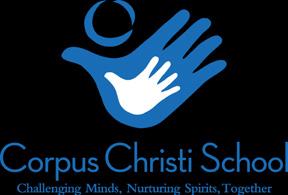



Take the guesswork out of finding the right private school for your child, from start to finish. The following articles are excerpts from the 2024/25 Annual Private School Guide produced by Parents’ Press, covering Why Consider a Private School, Private School Search and Information on Financial Assistance. Coming in October, the complete Annual Private School Guide leads parents chronologically along the school-selection path, beginning with the value of private education and how to start the process with an emphasis on the all-important application process, including interviewing tips, required testing information, and essay writing tips as well as the ins-and-outs of financial aid. There are school profiles and a comprehensive list of regional private schools sorted by city. Your road to the ideal school just got simpler! Access the Annual Private School Guide for free at ParentsPress.com and tap the Our Magazines tab to view.
Many parents feel that their children will thrive better in what they believe is a smaller, safer environment with more room for personal attention. And while public schools must follow a curriculum heavily influenced by state standards, private schools have more freedom to customize lessons to students’ individual ways of learning.
Private schools can also point to low student-teacher ratios, freedom from state standards and testing, and lots of extras like music, foreign languages, STEM resources and
art that are underfunded or nonexistent in public schools. Private schools are often well-equipped with current educational technology to facilitate in class and virtual instruction. Rest assured, promise school experts, there is a school out there to suit every child.
There are two primary sorts of private schools— independent schools and parochial schools.
INDEPENDENT SCHOOLS are defined as nonprofit private schools with their own governing board of trustees. While most people commonly refer to independent schools








(of the year before you want your child to attend)
• Define your ideal school
• Find schools that match your child’s needs
• Research and ask questions of schools on your preliminary list
• Browse schools’ websites to learn more about their programs and philosophies
• Attend local school fairs to gather material and impressions from multiple schools
• Request admissions and financial aid material by phone or online
• Review admissions materials to determine which schools to visit
• Create a calendar of pertinent admission and financial aid deadlines for the schools to which you are considering applying
• Ask elementary schools about their test schedules and make appointments
• Register for any standardized tests required for admission
• Review the test websites to learn about procedures and test dates, see sample questions, and purchase testpreparation books
• Call schools to schedule individual tours, class visits, interviews, and “shadow days”
While each school follows its own schedule, here is a typical admissions timeline. Many schools are transitioning to virtual admission events and individual tours.
if available
• Continue scheduling tours, interviews, class visits, and standardized or school-based tests
• Visit schools during open houses, attend information sessions, and take tours
• Finalize the list of schools to which you will apply
• Take required standardized admission tests
• Continue scheduling tours, interviews, class visits, and standardized or school-based tests
• Visit schools during open houses, attend information sessions, and take tours
• Request teacher recommendations from your child’s current school
• Start working on applications, financial aid forms, student questionnaires, and essays
• Continue to watch for any open house or school events of interest
• Request transcripts at the end of your child’s first semester
• Complete applications, questionnaires, and essays
• Note application deadlines. Some schools have December deadlines.
• Pay attention to deadlines: Most applications are due in January or February, along with test scores, references, transcripts, and financial aid forms
• Don’t miss deadlines: Many schools’ applications are due in February at the latest
• Visit schools and/or have your child participate in a student shadow day
• Watch for school decisions starting in mid-March
• Watch for financial aid decisions
• If your student is accepted by multiple schools, decide which school your child will attend
• Sign and return enrollment contracts and send deposits
• Notify schools that you applied to but decided not to attend
• Attend events and activities for new parents and students


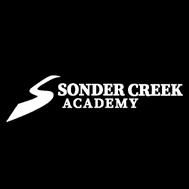
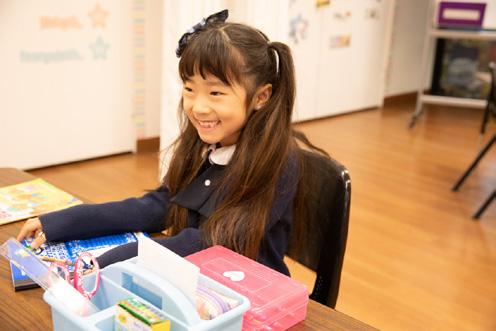









The Child Unique Montessori School - Encinal Campus
2226 Encinal Ave.
Alameda • 510-521-9227
www.thechildunique.org
The Child Unique Montessori School - Pacific Campus
2212 Pacific Ave.
Alameda • 510-521-9227
www.thechildunique.org
The Child Unique Montessori School - Taylor Campus 1400 Sixth St.
Alameda • 510-521-0595
www.thechildunique.org
Coastline Christian Schools
1801 North Loop Road
Alameda • 510-522-0200
www.coastlinechristian.org
EnCompass Four Corners School 1828 Park St.
Alameda • 510-735-1501 www.encompass4corners.org
Montessori Elementary Intermediate School of Alameda 1400 Sixth St.
Alameda • 510-521-0595
www.montessorielementaryalameda.org
Albany
Tilden Preparatory School
1231 Solano Ave.
Albany • 510-525-5506 www.tildenprep.com
Berkeley
The Berkeley School (K-8 Campus) 1310 University Ave
Berkeley • 510-665-8800 www.theberkeleyschool.org
Bayhill High School 1940 Virginia St
Berkeley • 510-984-0599 www.bayhillhs.org
Black Pine Circle School 2027 Seventh St
Berkeley • 510-845-0876 www.blackpinecircle.org
The Crowden School 1475 Rose St.
Berkeley • 510-559-6910 crowdenschool.org
Ecole Bilingue de Berkeley 1009 Heinz Ave.
Berkeley • 510-549-3867 www.eb.org
Maybeck High School
2727 College Ave.
Berkeley • 510-841-8489 www.maybeckhs.org
Saint Mary’s College High School 1294 Albina Ave
Berkeley • 510-526-9242 www.saintmaryschs.org

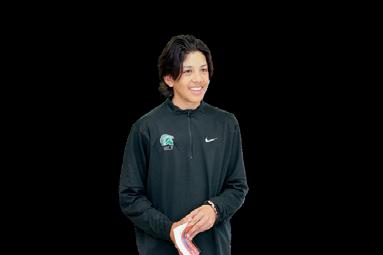

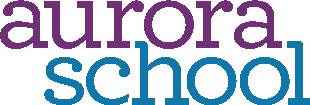








De


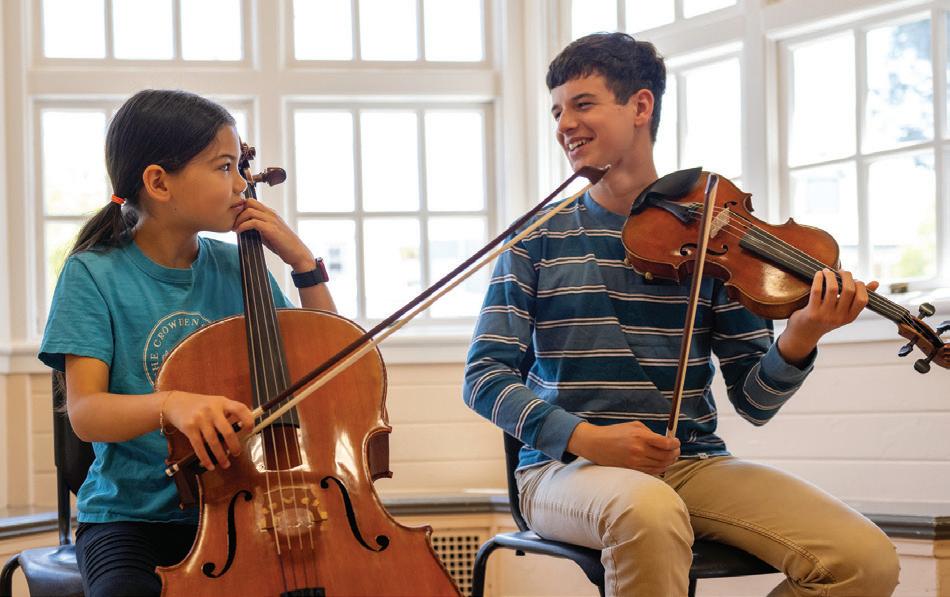












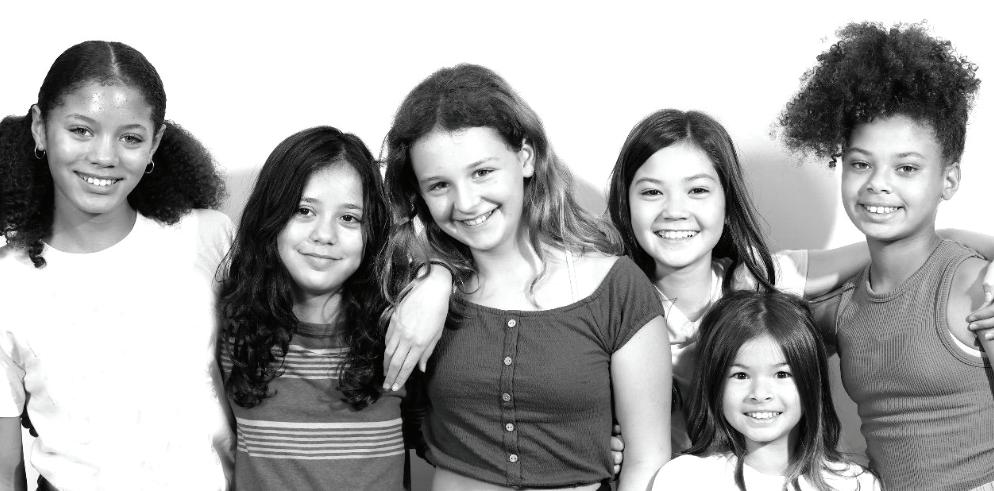
as private, lumping them in with parochial and for-profit schools, they are distinct because they are nonprofit and self-governing.
PAROCHIAL SCHOOLS, where tuition is typically one-third that of independent schools, offer traditional instruction and have solid reputations. Families who are “in-parish,” that is, who live within the schools’ official parish boundaries or volunteer and participate regularly in the parish, get first priority. Otherwise, the application procedures are similar to independent schools.
When considering private school education, think about these benefits as outlined by the Independent Schools of the San Francisco Bay Area (www.issfba.org):
High academic standards. Independent schools nurture intellectual curiosity, stimulate personal growth, and encourage critical thinking. A larger percentage of students at independent schools are enrolled in advanced courses than in public, parochial, and other private schools.
Small classes and individual attention. Independent schools have low student-teacher ratios that encourage close connections with students.
Excellent teachers. Educators usually teach in their areas of expertise and are passionate about what they do. With more autonomy within the classroom, teachers are able to develop a full understanding of how each student learns and what motivates and inspires each child.

Greater likelihood of a student completing a bachelor’s degree or graduate degree. Independent schools nurture not just students’ intellectual ability and curiosity but also their personal and social growth and civic conscience. Opportunities extend well beyond the classroom to athletic competitions, artistic pursuits, and school leadership experiences.
Education for the whole child. Independent schools nurture not just students’ intellectual curiosity but also their personal/ social growth and civic purpose. Opportunities extend well beyond the classroom to athletic competitions, artistic pursuits and school leadership offerings.
Inclusiveness. Schools maintain diverse and vibrant student communities and welcome and respect each family.
A community of parents who actively participate in their children’s education. Independent schools promote regular communication among students, parents, and teachers to ensure everyone is working toward the same goals for the student.
The opportunity to choose a school with a mission. You can select a school for which the philosophy, values, and teaching style resonate with both you and your child. And most important: An education that will pay dividends for a lifetime. Y Apply now Fall 2025 Grades 6 - 8
School of the Madeleine 1225 Milvia St Berkeley • 510-526-4744
www.themadeleine.com
Shu Ren International School - Berkeley Campus
2125 Jefferson Ave. Berkeley • 510-841-8899
www.shurenschool.com
Shu Ren International School - Berkeley Campus 1422 San Pablo Ave. Berkeley • 510-833-7789
www.shurenschool.com
Step One School 499 Spruce St. Berkeley • 510-527-9021
www.steponeschool.org
Redwood Christian Schools Castro Valley • San Lorenzo 510-889-7526
www.rcs.edu
De La Salle High School 1130 Winton Dr. Concord • 925-288-8100 www.dlshs.org

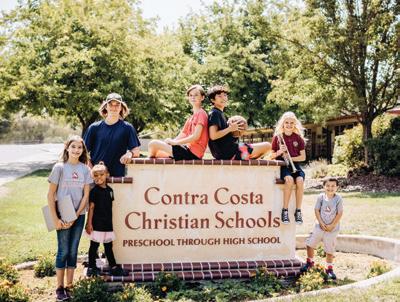


Orion Academy
1868 Clayton Rd. Concord • 925-377-0789 www.orionacademy.org
Athenian School
2100 Mt. Diablo Blvd. Danville • 925-837-5375 www.athenian.org 6-12
Quarry Lane School 6363 Tassajara Rd. Dublin • 925-829-8000 www.QuarryLane.org
East Bay Montessori
7075 Cutting Blvd.
El Cerrito • 510-236-8802 www.eastbaymontessori.org
Prospect Sierra School 960 Avis Drive 2060 Tapscott Ave. El Cerrito • 510-809-9000 www.prospectsierra.org TK-8 All Gender 9:1 470
East Bay German International School 1070 41st St. Emeryville • 510-380-0302 www.ebgis.org/
Escuela Bilingüe Internacional Grades 2-8
4550 San Pablo Ave. • Emeryville
PK - Grade 1 - See Oakland 510-652-7094 www.ebi.school
California Crosspoint Academy 25500 Industrial Blvd
Hayward • 510-995-5333 www.crosspointacademy.org
Bentley School
1000 Upper Happy Valley Road
Lafayette • 925-283-2101 www.bentleyschool.org
The Springstone School 1035 Carol Lane
Lafayette • 925-962-9660 www.thespringstoneschool.org
Valley Montessori School 1273 N Livermore Ave. Livermore • 925-455-8021 www.vmschool.org
8:1 K-3 11:1
K-8
Independent Special Needs Latin
Independent French, Spanish, Chinese Summer Programs
$46,500 - $54,000 FA Available WASC
$0-57,270 for day students $0-87,760 for boarding students CAIS, NAIS, WASC
$23,774-$47,065 WASC, NCPSA, NIPSA
Spanish, Mandarin
$27,900-$31,500 FA Available AMS, BAMA, ISSFBA, NAIS
Spanish TK: $27,710 ES: $34,300 MS: $38,865 FA Available
NAIS, POCIS, Green Ribbon School, Ashoka Change-maker School
IB World School, WASC, PASCH, WDA
CAIS, WASC, IBO
Montessori Curriculum
$38,700 6-8: $42,300 9-12: $55,800 FA Available
WASC, ISSFBA
$6,000 - $22,000 FA Available
CAIS, WASC, CA Green Business Cert.
The Saklan School
1678 School St.
Moraga • 925-376-7900
www.saklan.org
Newark
Challenger School - Ardenwood
35487 Dumbarton Court
Newark • 510-739-0300
www.challengerschool.com/campus/california/newark/ardenwood
Challenger School
39600 Cedar Blvd.
Newark • 510-770-1771
www.challengerschool.com/campus/california/newark
Aurora School
40 Dulwich Road
Oakland • 510-428-2606
www.auroraschool.org
Bentley School
1 Hiller Dr.
Oakland • 510-843-2512
www.bentleyschool.org
College Preparatory School
6100 Broadway
Oakland • 510-652-4364
www.college-prep.org
9-12 All Gender 8:1 650
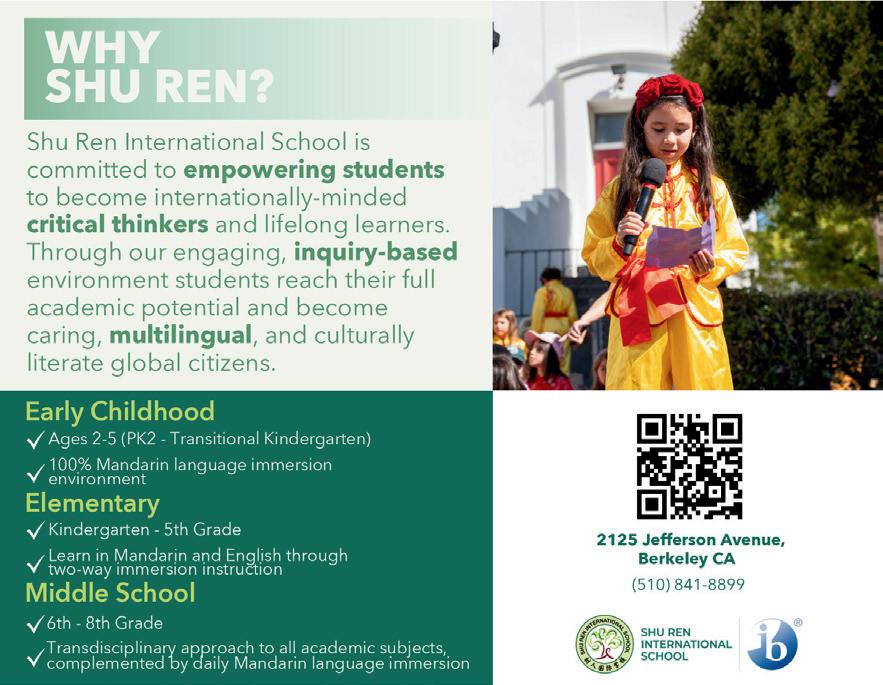

English, Spanish, French, Mandarin,



Escuela Bilingüe Internacional
PK - Grade 1
410 Alcatraz Ave. • Oakland Grades 2-8 - See Emeryville 510-653-3324
www.ebi.school
Head-Royce School
4315 Lincoln Ave.
Oakland • 510-531-1300
www.headroyce.org
Holy Names High School
4660 Harbord Dr.
Oakland • 510-450-1110
www.hnhsoakland.org
Julia Morgan School for Girls
5000 MacArthur Blvd.
Oakland • 510-632-6000 www.juliamorganschool.org
Pacific Boychoir Academy 215 Ridgeway Ave.
Oakland • 510-652-4722
www.pacificboychoir.org
Park Day School 360 42nd St.
Oakland • 510-653-0317 www.parkdayschool.org
Redwood Day 3245 Sheffield Ave. Oakland • 510-534-0800 rdschool.org

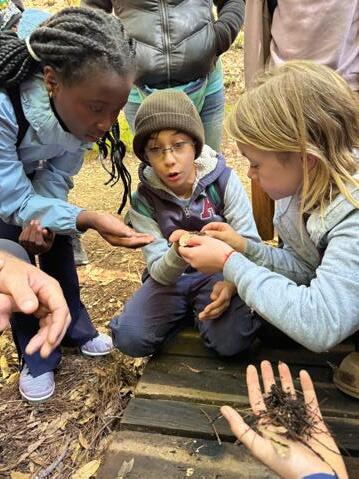







St. Paul’s Episcopal School 116 Montecito Ave. Oakland • 510-285-9617 www.spes.org
St. Theresa School
4850 Clarewood Drive Oakland • 510-547-3146 www.sttheresaschool.org
Corpus Christi School
1 Estates Drive
Piedmont • 510-530-4056 www.corpuschristischool.com
St. Joseph School 1961 Plum St. Pinole • 510-724-0242 www.stjosephpinole.org
Salesian College Preparatory
2851 Salesian Ave. Richmond • 510-234-4433 www.salesian.com

PRINT.pdf 1 8/7/24 4:32 PM

our Reggio-inspired Preschool and develop mental Kindergarten to our adventurous Lower School and hands-on Middle School, Seven Hills students are on a journey of curiosity and exploration, success and setbacks, awareness of self, and contribution to others. Join us for a tour to experience our community!



-
94598 (925) 933-0666 • sevenhillsschool.org
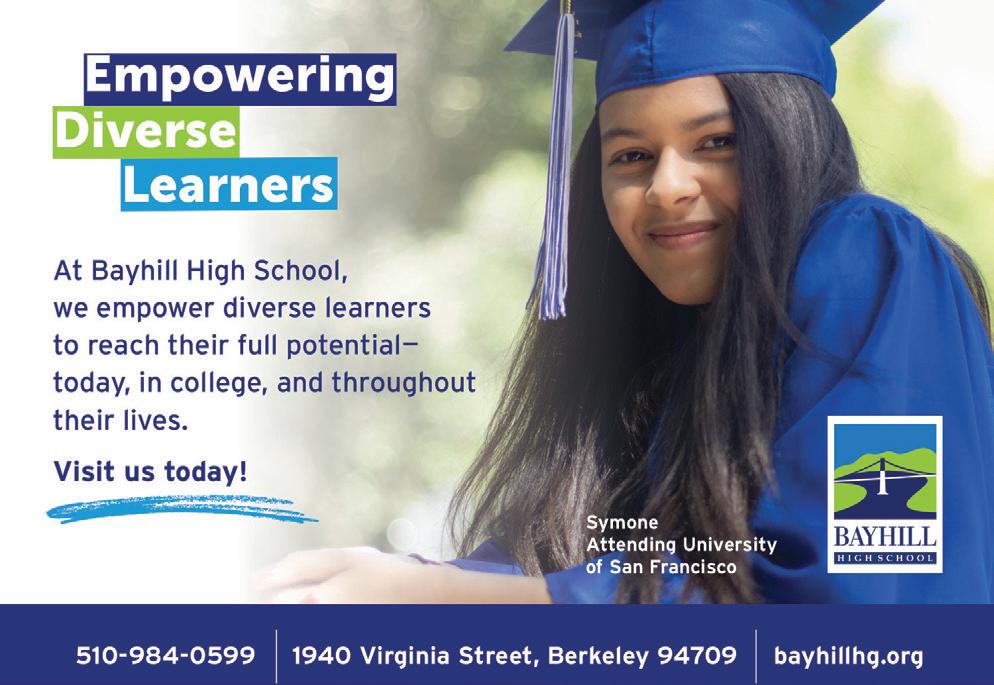



The East Bay German International School (EBGIS) offers exceptional academics and German immersion from preschool through grade 8. Our East Bay International High School (EBIHS) is a college preparatory high school offering the International Baccalaureate (IB) Diploma Programme (DP). Often referred to as the gold standard in high school education, the IB is highly regarded by universities in the United States and worldwide.
We provide a dynamic learning environment and a truly global perspective, anchored by our European educational approach. Our small size and low student-teacher ratio (7:1) enable our highly trained international faculty to provide an individualized educational experience to each student.
Our International High School is open to all students in grades 9-12. EBIHS offers multiple language tracks with beginner to native-speaker-level language and literature courses in German, French, and Spanish as well as introductory Mandarin. All other EBIHS instruction is in English.
No knowledge of German is required for students entering our preschool or kindergarten, nor for our high school. Talk with us about individualized language support for elementary and middle school students.







Berean Christian High School
245 El Divisadero Avenue
Walnut Creek • 925-945-6464 www.bereanchristian.com
Contra Costa Christian Schools
2721 Larkey Lane
Walnut Creek • 925-934-4964 contracostachristianschools.org
Seven Hills School
975 N. San Carlos Drive
Walnut Creek • 925-933-0666 www.sevenhillsschool.org
Sonder Creek Academy
860 Bancroft Road
Walnut Creek • 925-440-1244 sondercreekacademy.org
Tilden Preparatory School
1475 N. Broadway
Walnut Creek • 925-933-5506 www.tildenprep.com
Alta Vista School
450 Somerset St. San Francisco • 415-467-3700 www.altavistaschool.org


The School of the Madeleine is a vibrant, inclusive, K-8 Catholic school in Berkeley. For 85 years, we have delivered a high-quality, values-based education. Our school follows the four Dominican Pillars of Faith, Study, Community, and Service
The School of the Madeleine is a vibrant, inclusive, K-8 Catholic school in Berkeley. We are dedicated to the education of the whole child—mind, body, and spirit. Our leadership is committed to academic excellence, spiritual development, and social justice.
We believe that every student is exceptional, and in the tradition of Catholic education, our mission is to help them become lifelong learners and compassionate citizens who care for one another. We welcome every family with open arms and invite you to learn more about our community.
In addition to our strong academic program, we offer music, band, Spanish, art, 1:1 iPads, tech lab, partner teachers, learning support, and after-care program.
Come see what we are all about! www.themadeleine.com





Cathedral School for Boys
1275 Sacramento St
San Francisco • 415-771-6600
www.cathedralschool.net
Convent & Stuart Hall, Schools of the Sacred Heart San Francisco
2222 Broadway and 1715 Octavia St
San Francisco • (415) 563-2900 www.sacredsf.org
The International School of San Francisco
150 Oak Street
San Francisco • 415-558-2022 www.frenchamericansf.org
KFS School
3140 Balboa Street
San Francisco • 415-525-4035
www.kfsschool.org
Sacred Heart Cathedral Preparatory 1055 Ellis St.
San Francisco • 415-772-6626
www.shcp.edu
St. Anthony-Immaculate Conception 299 Precita Avenue San Francisco • 415-628-2008 www.saicsf.org
Principal: Barbara Moodie
























Every private school has its own policies about who receives financial aid, what types of aid are awarded, and how much aid a particular family will receive. In most cases, the financial aid office cannot tell you if your family will qualify for financial aid until you submit an application that allows the school to evaluate your unique situation.

To determine your eligibility for financial aid, you must submit an application form and financial statements. There is no income limit that automatically makes your family ineligible for financial aid. Financial aid officers take into account your income, assets, and expenses, including educational costs for other children.
Bottom line: If you feel your family cannot afford to pay the full cost, regardless of your income, it’s worth the effort to submit a financial aid application.
Every school has its own financial aid schedule, and the deadlines are different for schools with rolling admissions. In general, most financial aid applications are due in January or February. Check with your school of choice for the deadline. You
will receive a financial aid decision shortly after your child is admitted to a particular school.
Grants are the most common type of financial aid offered by private schools. They are awarded annually to students who demonstrate financial need, and students must reapply each year. Grant money comes from the school’s budget and does not have to be paid back.
Merit scholarships awarded by the school are rare and are usually reserved for students who have a special talent that the school is seeking, such as art, music, or academics. Generally, scholarships are based on financial need. They may be awarded once, annually, or as long as the student meets the scholarship criteria.
Scholarships from outside organizations are also rare, and often awarded by local chapters of national groups like the Rotary
Club. Ask the school for a list of organizations that have provided scholarships to their students in the past, and check the list on parents.nais.org. Each scholarship program will have its own eligibility rules, application, and deadlines. Tuition loans are personal loans provided by a private lender. You must apply directly to the lender, and your loan amount and interest rate will depend on the lender’s credit requirements. Some use loans to pay for expenses not covered by a grant.
Tuition Payment Plans allow you to make monthly payments rather than writing one or two large checks each year. Schools offer payment plans through a third-party financial services company, which charges a relatively small fee.
Sibling discounts are designed to help families with more than one child enrolled in the same school. Many schools are shrinking these discounts, or phasing them out altogether. Even so, it’s worth asking if this situation applies to you.
Most families pay for tuition through a combination of these options. The school’s financial aid officer can help you create a financing plan that fits your family’s needs. Don’t hesitate to ask questions and explore all the options available to you.
Reprinted with the permission from National Association of Independent Schools, nais.org.















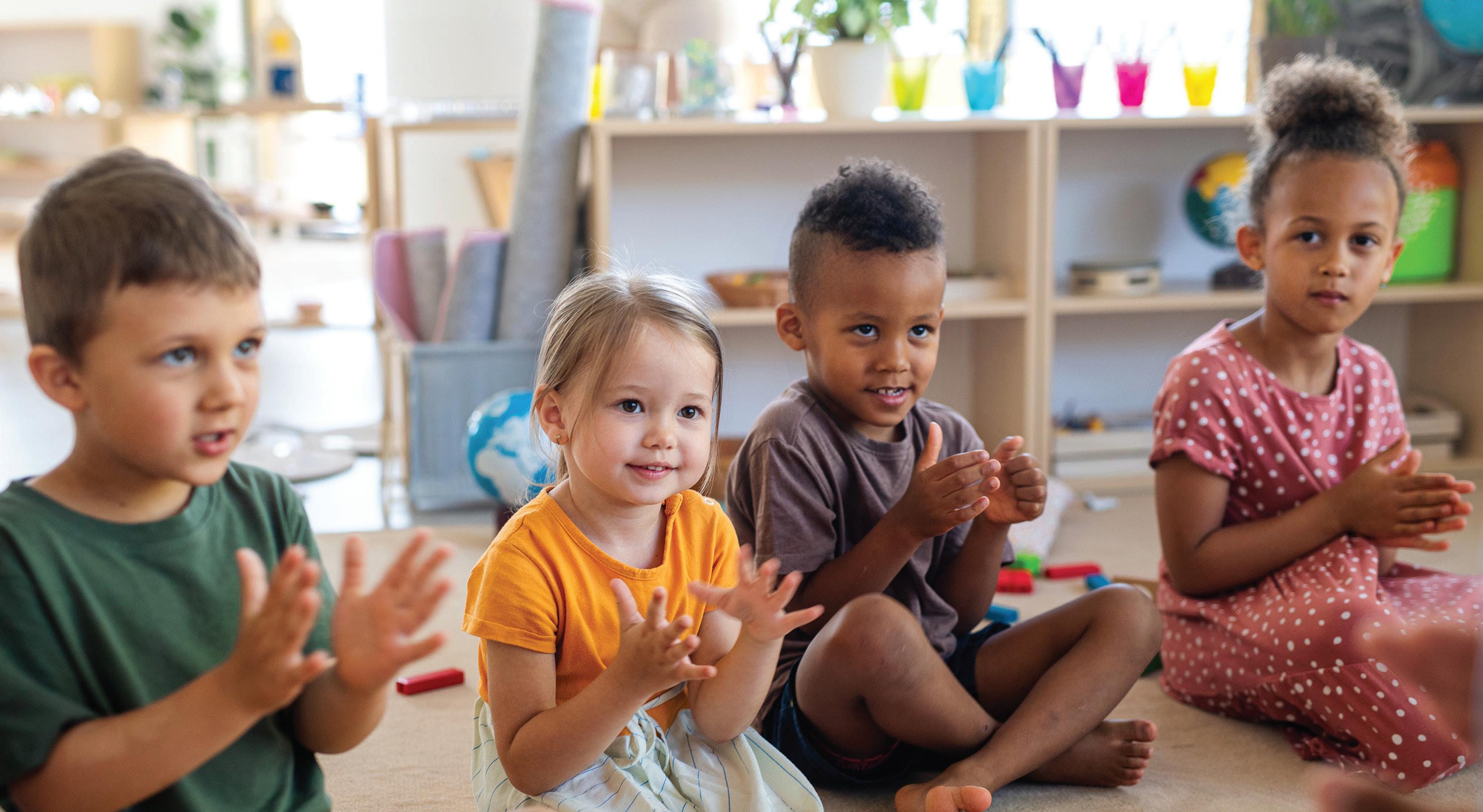
Parents’ Press takes the guesswork out of finding the right preschool for your child, from start to finish.
The following articles are excerpts from the 2024/25 East Bay Guide to Preschools and Early Education, covering “7 Steps to Finding the Perfect Preschool,” “What to Look for When Doing the Site Visit” and “Basics to Know About Preschool Options.” The complete 2024/25 East Bay Guide to Preschools and Early Education leads parents along the early education or preschool selection path beginning with how to determine if your child is
ready for preschool, what options and different teaching philosophies are available, questions to ask a preschool, what to look for on a site visit and more. In addition, you will find program profiles and a comprehensive list of regional early education and preschool programs. Your road to the ideal early education program just got easier! Get your copy today of this free resource at ParentsPress.com/our-magazines.
1
START EARLY. It takes time to research different styles of preschools and become familiar with common terms used. Many parents start this process a year ahead of time, some parents even start while pregnant! Children usually attend preschool for two to three years between the ages of 2.5 and 5 years.
2
DETERMINE WHAT CRITERIA IS MOST IMPORTANT FOR YOUR CHILD AND FAMILY. Is it location, faith, type of program offered, language immersion, special-needs options, a year-round program, extended hours, cost? Prioritize what are the most important factors for your situation? Rate these factors so you have a clear picture of where and what programs to focus on and what is the best fit for your child and family.
3
UTILIZE LOCAL PARENTING RESOURCES. Local parenting websites, like ParentsPress.com, offer lots of early education and preschool information as well as open house announcements. These resources will help you to become familiar with what programs are available in your area and the options being offered to help with your selection process. Visit school websites that look interesting to find out admissions information.
4
ASK AROUND. Talk to other parents in your area to see what programs they were part of, and if they would recommend them. Find out what they liked most and least about the program. How long did their child attend? Did they experience any teacher turnover? What was the culture like? How did they handle sick days, potty training and behavioral issues? How involved were the parents in the school? Are the parents and children still in contact with others from that preschool?
1
Be prepared with this checklist before you step foot into the school
FIRST IMPRESSIONS. Is the preschool clean, organized and does it have a good feeling about it? Is the staff friendly, and are the teachers in control of the classroom? Inside, are there play areas? Are toys and books in good shape and organized? Outside is there enough room? Are there play areas and toys for all of the kids? Does the preschool feel safe inside and out? Does the preschool feel like a place your child can thrive in?
2
THE BASICS. What are the start and end times for the core program? If extended care is an option, who manages this, and, where is it held? What is the daily schedule, as well as the school holiday schedule? Are lunch and snacks provided? If not, is refrigeration available? Is the bathroom safe and centrally located with toddler sized facilities? What are the illness policies? Is the facility up to code? What are the emergency protocols?
3
TEACHERS AND STAFF. Is there enough supervision? Does the teacher-child ratio match or exceed standards? Teacher turnover? What experience do the teachers have and how long have they been teaching at this school? How were they trained? Do the teachers seem happy? How is their interaction with the children? How do they balance the different needs of the children? Do they have a specific approach for teaching social-emotional skills? How do they communicate with the family on concerns? How often are parent-teacher conferences held?
4
LEARNING ENVIRONMENT. Are the children doing the same project or do the children work independently? Are there a variety
of learning materials in which children can explore their interests and learn new skills? Is there a focus on reading? How do children decide what to do, when to do it and with whom? What support do teachers provide when a child gets stuck on a project? How are children motivated to participate? How are holidays integrated into the learning experience?
5
FAMILY INVOLVEMENT. How involved are the families in the day-to-day operations of the preschool? What opportunities or organized events are available to meet other families during the school year? Is there a parent association? Are there required volunteer hours or monetary commitments beyond the tuition? Are there fundraising events and what is the money raised used for? Are there opportunities for classroom observation? How do family members participate in celebrations?
6 FINAL IMPRESSION OF THE VISIT. This is your gut check. Do you feel this preschool is a great fit for your child? Did you feel comfortable with what you saw and the people you interacted with? Did your concerns get addressed? Any red flags you need to check up on? Were you encouraged to contact the school with any questions? Is there a clear next step in the process?
Every family has specific needs and many preschools can accommodate most needs. It is important to ask questions now. Don’t be afraid to discuss personal matters, one on one. Chances are the preschool has encountered a similar situation before and is up to the task or may be able to give you direction to an alternative resource. Y




The school for your child: a health conscious, culturally responsive, joyful environment.


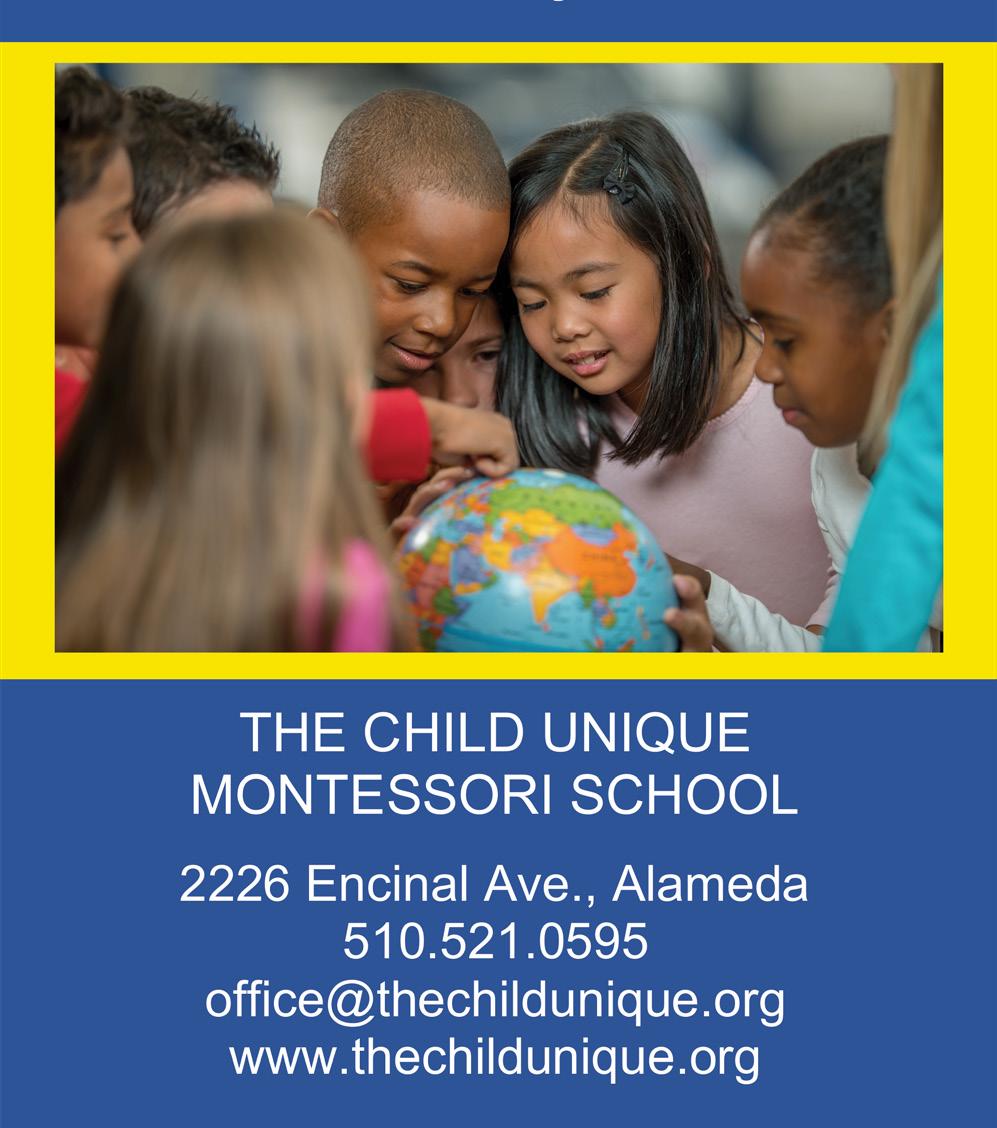
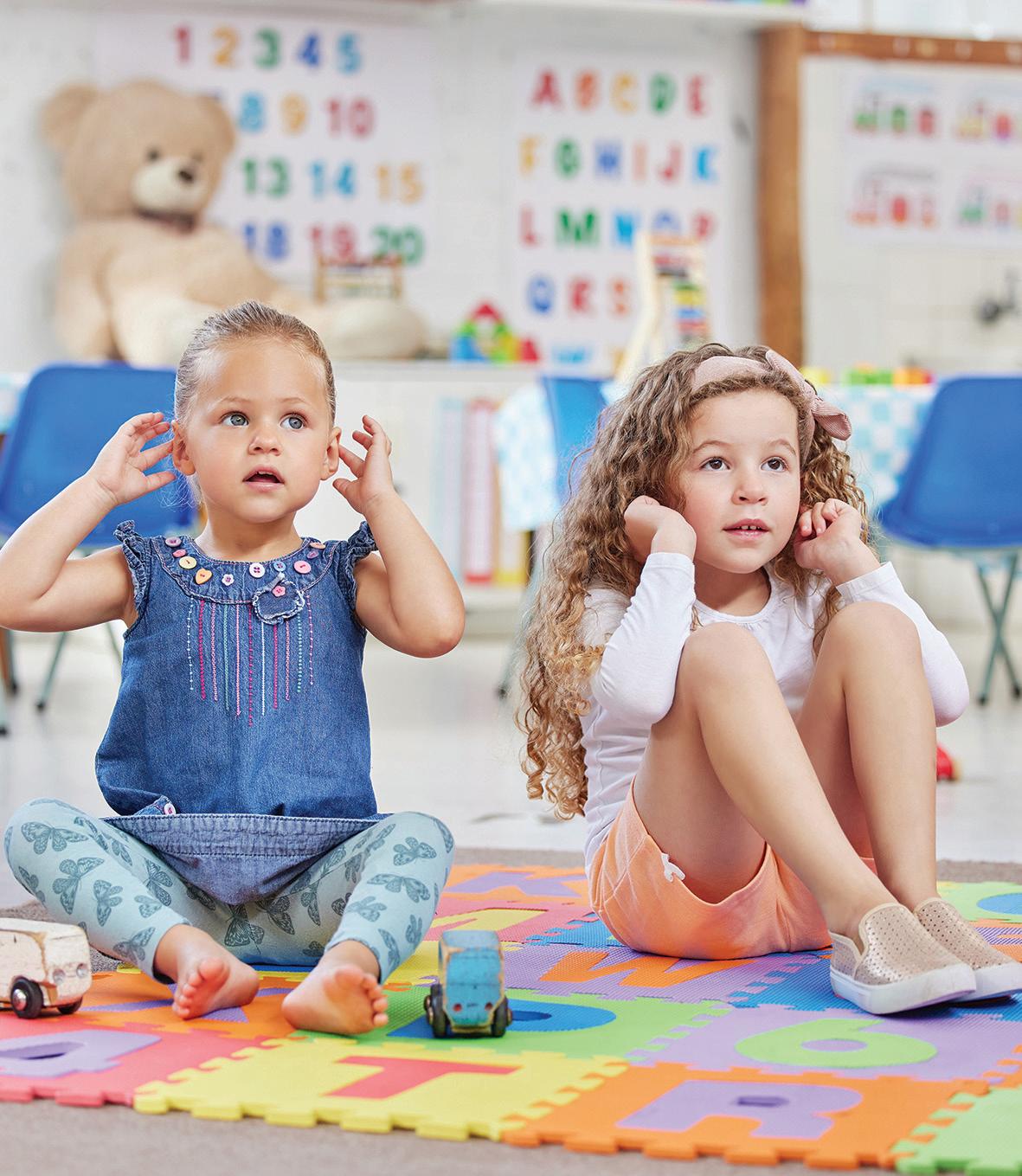
5







CONTACT THE PRESCHOOL. Before you apply, find out the preschool’s admissions schedule and how many openings they will have and how many spots will be reserved for siblings of families already enrolled. If you are concerned that your top choice or choices have way more applicants than spots it would be a wise idea to apply to more than one preschool even though there may be an application fee. Find out ways to tours the school.
6
TOUR YOUR TOP CHOICES. Arrange to take a tour or go to an open house to learn about the school philosophy and the admissions process. Most schools prefer for you to preregister for these. Have your questions ready and observe. Look for signs that the preschool is well run. Also, this is a time that the preschool uses to determine which families will be a good fit for their program.
7

APPLY TO YOUR TOP CHOICE. You have done your research, established your criteria and taken the tour — now it is time to apply to your top choice. Some preschools have ongoing enrollment but most follow the school year format. Acceptance letters go out in spring for the following fall. Also, find out from the organization when you can expect to hear from them, one way or another. It is okay to be persistent and let them know you and your family are interested, but don’t be a pest. If your child is waitlisted get specifics from the preschool. What number on the wait list is your child and does the preschool have a commitment from all returning families? If the school is accepting a total of 15 new children and you are way down on the wait list, it is time to consider other options. If you are concerned that your top choice has more applicants than spots it would be a good idea to apply to more than one preschool. Y
Religious Affil (if any) Hours of Care
The Child Unique Montessori School - Encinal Campus 2226 Encinal Ave.
Alameda • 510-521-9227
The Child Unique Montessori School - Pacific Campus 2212 Pacific Ave.
Alameda • 510-521-9227 www.thechildunique.org 18 mos - 3 yrs Up to 20 children 7:00 am - 6:00 pm
The Child Unique Montessori School - Taylor Campus 1400 Sixth St.
Alameda • 510-521-0595 www.thechildunique.org
The Dorris-Eaton School 1286 Stone Valley Road Alamo • 925-837-7240 www.dorriseaton.org

Helping Children Explore Their World!




Tuition




$622 -$1,933
Accepted
$622 -$1,933
$622 -$1,933
- $36,320


Contrary to what you might have heard, choosing the right preschool for your child is not as difficult as applying for an advanced degree. The key to choosing the right preschool is going into the process prepared. Prepared with a solid idea of what you want your child to gain from his or her preschool experience.
Below are helpful suggestions for choosing a preschool that is a good match for your child and your family, as well as information on some of the most popular types of preschool educational philosophies.

The best way to keep from becoming overwhelmed by the process of choosing a preschool is to think about how the preschool will fit into your daily life. Here are some questions parents should consider:
• Is it important for the preschool to be near my home?
• Is it important for the preschool to be near my workplace?
• Is it important for the preschool to offer childcare services in the morning, afternoon, or both?
• Are you looking for a play-based classroom or a more academic setting?
• Am I eligible for or interested in subsidized preschool programs (i.e., Early Head Start, Child Welfare League of America or state-funded programming) that offer services such as childcare programs with a focus on providing educational opportunities?
Answering each of these questions will help you narrow down the general location and type of setting you should research making the process of comparing programs easier to manage.
For many parents, the most confusing part about choosing preschools is trying to make sense of terms such as, “Montessori Approach,” “child-centered,” “Waldorf Approach” and “faith-based.” What do these terms mean and how can these terms help you choose a preschool?
Oftentimes, the key difference between settings is connected to the preschool’s “educational philosophy.” While educational philosophies are numerous and their definitions are not set in stone, we have provided you with definitions for some of the most popular philosophies.
Academic preschools have a mostly teacher-led classroom. Teachers and staff guide kids through a tightly structured curriculum. They introduce kids to several subjects, including math, reading, writing, science, and nature.
In a play-based program, children choose activities on their current interests. The play-based classroom is broken up into sections, such as a home or kitchen, science area, water table, reading nook, space with blocks and other toys or other areas. Teachers encourage kids to play, facilitating social skills along the way.
Montessori Method
This philosophy focuses on maintaining the individuality of each child in the learning process. It believes each child learns at their own pace and educational progress should not be rendered based upon comparing students to one another.
Reggio Emilia Approach
This approach focuses on providing opportunities for problem solving and expression through creativity and exploration.
Waldorf Approach
Emphasis is placed on imagination and experiential learning, providing students with opportunities to explore their world through the senses, participation and analytical thought.
Bank Street Approach
This approach places an emphasis on learning through multiple perspectives, both in the classroom setting and in the natural world with a strong focus on emotional and intellectual development.
HighScope Approach
This approach focuses on letting children be in charge of their own learning. Children are taught to make a plan for what they would like to do each day and participate in a review session to discuss the success of their plan and brainstorm ideas for the next day.
Outside of the formal educational philosophies, knowing the difference between other common early childhood terms will


help you make informed decisions regarding your child’s education. Below is a list of some common terms used to describe preschool settings. It should be noted that these terms may be used alone or in combination with one another (i.e., a “childcentered, faith-based” setting).
This term is often used to describe settings that take the children’s interests into consideration when planning activities. For example: in a child-centered setting, the classroom activities are based on the interests of the students, not on pre-scheduled topics chosen by the teacher. These settings often offer increased opportunities for children to choose activities throughout the day depending on their interests.
The opposite of a child-centered setting is a teacher-led setting. Teacher-led often means that curriculum and supplemental activities are implemented based on a set schedule developed by the teachers in the setting. This type of setting usually provides children with a structured learning environment.
These settings believe children learn best when they are engaged and interested in learning. Child-led settings wait for each child to initiate or ask for new activities and experiences, fostering individualized learning experiences rather than group experiences.
Continued on page 50 >>>
Berkeley
The Berkeley School (Early Childhood Campus)
2030 Francisco St
Berkeley • 510-849-8340 www.theberkeleyschool.org
Cedar Creek Montessori School
1600 Sacramento Street
Berkeley • 510-525-1377
cedarcreekmontessorischool.com
Ecole Bilingue de Berkeley (EB) 1009 Heinz Avenue
Berkeley • 510-549-3897 www.eb.org
KSS Spanish Immersion Preschool 1422 San Pablo Ave
Berkeley • 877-442-2555 www.ksspreschool.com
Little Elephant Too! 2008 McGee Ave
Berkeley • 510-679-5056 www.littleelephant.net
Shu Ren International School 2125 Jefferson Ave.
Berkeley • 510-841-8899 www.shurenschool.com
Step One School
499 Spruce Street
Berkeley • 510-527-9021
www.steponeschool.org
Wood Rose Academy & Preschool 4347 Cowell Road
Concord • 925-825-5493
Autumn Creek Learning Center 14 Osborn Way
Danville • 925-743-4187
www.autumncreek-lc.com
Ages Served # of Children at Facility
Religious Affil (if any) Hours of Care
2 yr - 5 Up to 92 children
8:30 am - 3:00 pm Ext care to 5:30 pm
2.6 yr - 5 Up to 40 children 8:00 am - 5:30 pm
2 yr - 5 Up to 100 children 8:15am to 3:30pm. Extended care available (7:30am to 6pm)
2 yr - 6 Up to 48 children 7:00 am - 6:00 pm
2 - 6 yrs 24 children 8:00 am - 5:30 pm
to G8 Up to 140 children 7:30 am - 6:00pm
2 yr - 5 115 children 8:30 am - 5:00 pm
2 yr - 8th grade Up to 56 children Roman Catholic 6:45 am - 6:00 pm
2 yr - 5 Up to 110 children 7:00 am - 6:00 pm

Tuition Range Accredited Facility? Diapers Accepted? Education Based?
Home or Center Meals Provided? Special Needs? Transportation?
$28,500 FA Available Accredited Diapers Accepted Education Based
Varies Diapers Accepted Education Based
$33,665 Accredited Diapers Accepted Education Based
$2,795 Tuition Assistance
Spanish Immersion Education Based
Special Needs Accepted
Variety of schedules available
$2,795 - 10 months Tuition Assistance
Accredited Mandarin Immersion Education Based Center Summer Programs
$19,000 - $35,000/ year FA Avaiable Diapers Accepted Education Based Center Meals Provided
$510 - $1,620
Diapers Accepted Education Based Center Meals Provided
Please call for rate Accredited Diapers Accepted Education Based Center Meals Provided



Garden Montessori School 495 Verona Avenue
Danville • 925-837-2969
Quarry Lane School
5600 Scarlett Dr. Dublin • 925-466-3100 www.quarrylane.org
Children’s Garden Montessori School
2335 Tulare Ave
El Cerrito • 510- 232-3089 https://www.childrensgardenmontessorischool.com
East Bay German International School Early Education 1070 41st St. Emeryville • 510-380-0302 www.ebgis.org/ 2 - 5
California Crosspoint Academy
25500 Industrial Blvd
Hayward • 510-995-5333 www.crosspointacademy.org
925-932-8088 www.happydayslafayette.com 2 yr - 11 Up to 84 children 7:00 am – 6:00 pm $930-$1925 Diapers Accepted Education Based





Old Firehouse School 984 Moraga Rd
Lafayette • 925-284-4321
Served
www.oldfirehouseschool.com 12 mos - 5
The Child Day Schools 1049 Stuart Street
Lafayette • 925-284-7092
www.tcdschools.com
Viva el Español 925 Village Center, Suite 2
Lafayette • 925-962-9177 www.vivaelespanol.org Ages 3 - 13
Valley Montessori School 1273 N. Livermore Avenue
Livermore • 925-455-8021 www.vmschool.org
The Child Day Schools
372 Park Street
Moraga • 925-376-5110
www.tcdschools.com
(if
Tuition Range Accredited Facility? Diapers Accepted? Education Based?
Please call for rate
$935 to $2,410 Diapers Accepted
Varies according to schedule
Preschool: 18 mos - K plus Grades 1-8 Up to 425 children Independent 7:30 am - 6:00 pm
mos - 5 years
am to 5:30

Varies by program2, 3 or 5 half/full day AMS, CAIS, WASC Diapers Accepted Montessori Curriculum
$890 - $2,475
Diapers Accepted
Based

Challenger School - Ardenwood
35487 Dumbarton Court
Newark • 510-739-0300
www.challengerschool.com/campus/california/newark/ardenwood
Challenger School
39600 Cedar Blvd.
Newark • 510-770-1771
www.challengerschool.com/campus/california/newark
Broadway Children’s School of Oakland
394 Adams Street
Oakland • 510-763-9337
www. broadwaychildrensschool.org
Escuela Bilingüe Internacional 410 Alcatraz Ave. Oakland • 510-653-3324
www.ebi.school
KSS Spanish Immersion Preschool 2540 Charleston St
Oakland • 877-442-2555
www.ksspreschool.com




KSS Spanish Immersion Preschool 1650 Mountain Blvd
Oakland • 877-442-2555
www.ksspreschool.com
Les Petits Francophones
3900 35th Avenue
Oakland • 510-479-1250
www.lespetitsfrancophones.com
Oak Grove Learning, Inc 8115 Fontaine St
Oakland • 510-430-1322
www.oakgrovelearning.com
Oakland Montessori School 3625 Fruitvale Avenue 3636 Dimond Avenue
Oakland • 510-482-3111 www.oaklandmontessori.com
Rockridge Montessori School 5633 Manila Av
Oakland • 510-652-7021
www.rockridgemontessori.org
Treehouse Preschool & TK
4000 Redwood Rd
Ages Served # of Children at Facility
Religious Affil (if any) Hours of Care
2 yr - 6 Up to 60 children 7:00 am - 6:00 pm
0 yr - 5 Up to 54 children
8:00 am - 5:30 pm
18 mos through Kindergarten Up to 62 children 7:00 am - 6:00 pm
Toddler-K Up to 40 children
8:30 am - 4:30 pm Extended Care Avail
12 months through Kindergarten Up to 139 children 7:30 am - 6:00 pm
Oakland • 510-531-0320 www.firstcovtreehousepreschool.org 2 yr - 5 First Covenant Church 9:00 am - 4:00 pm or 7:30 am - 6:00 pm
Holy Shepherd Christian Preschool
433 Moraga Way
Orinda • 925-254-3429 www.holyshepherd.org
City of Piedmont Mulitiple Locations
Piedmont • 510-420-3040 https://piedmont.ca.gov
Choice in Learning
490 Golf Club Rd
Pleasant Hill • 925-687-5321 cilmontessori.org
Little Flowers Montessori 11533 Dublin Canyon Rd Pleasanton • 925-225-9600
Quarry Lane School
3750 Boulder St. Pleasanton • 925-846-9400 www.quarrylane.org
Quarry Lane School 4444B Black Ave. Pleasanton • 925-462-6300 www.quarrylane.org
2 yr - 5 Up to 25 children Christian 9:00 am - 2:00
Tuition Range Accredited Facility?
Diapers Accepted? Education Based? Home or Center Meals Provided? Special Needs? Transportation?
$2,795 Tuition Assistance Spanish Immersion Education Based
$1,585 - $2,923
Diapers Accepted Play Based Learning French Immersion Program
$1,175 - $1,931
Diapers Accepted Education Based
$14,000-$25,500 Accredited Education Based
$2,405 - $3,347
Diapers Accepted Education Based
Little Angels (2yrs) $2,150.00 PS-TK (3-5 yrs) $1,810.00
Registration Fee $100 Diapers Accepted (2yr old class)
Extended Day Available
Meals Provided
Meals Provided
The Child Day Schools
883 Rose Avenue
Pleasanton • 925-462-1866
www.tcdschools.com
St. David Preschool
Richmond • 510-232-1736 www.stdavidschool.org
Diablo Hills Country School
50 Creekside Drive
San Ramon • 925-831-1210 www.diablohillscountryschool.com
Little Bridges Child Care Center
9015 S. Gale Rd. San Ramon • 925-498-9808 www.littlebridges.org
The Child Day Schools
18868 Bollinger Canyon Road San Ramon • 925-820-2515 www.tcdschools.com 12 mos - 5 years
Contra Costa Christian Schools
2721 Larkey Lane
Walnut Creek • 925-934-4964 contracostachristianschools.org
Old Firehouse School 55 Eckley Ln Walnut Creek • 925-934-1507 www.oldfirehouseschool.com
The Seven Hills School 975 North San Carlos Drive Walnut Creek • 925-933-0666 www.sevenhillsschool.org
$875 - $1,930
Snacks Provided Lunch Available(extra charge)
$8,000-$11,000
$650 - $2420
- $2,405
Transportation Available (for schoolage) Snacks Provided Lunch Available(extra charge)
$11,200 - $13,200




Treehouse Preschool & Transitional Kindergarten
Ages: 2-5 Years
Well Rounded Curriculum
Experienced Loving Teachers
9:00am-4:00pm & 7:30am-6:00pm
A Ministry of First Covenant Church 4000 Redwood Rd, Oakland, CA 94619
510.531.0320
www.firstcovtreehousepreschool.org jan@treehousepreschool.org
French Dual Immersion Preschool
• Emphasis on French Language
• Affordable
• Year Round
• Play-based
• Nurturing environment
• Enrichment Programs
• Part-time and Full Time
• Extended hours available
• Meals included


This term is used to describe preschool programs that are run through faith organizations such as churches or synagogues, according to their faith’s philosophies.
These settings often ask parents and families to assist in the running of the preschool. Parents and family members may build community by signing up to volunteer during the week, or by assisting in the day-to-day management of the preschool as well as helping with advertising, upkeep and fundraising.
This term means the preschool plans the curriculum and activities based on activities that are appropriate for the age of the children in the class.
Sometimes this term is used interchangeably with preschool. In general, a pre-K program is one that has children enrolled in the year before kindergarten, usually at age four. These settings are often more structured than traditional preschool settings.


Transitional kindergarten (TK) is a school grade that serves as a bridge between preschool and kindergarten, functioning to provide students with time to develop fundamental skills needed for success in school in an age - and developmentally - appropriate setting.
Once you have narrowed down the general area you are interested in researching and have a good idea of what type of philosophy would best suit your child, here are a few things you can do to help narrow down your options:
Reach out to other parents: Ask your friends, your neighbors, your pediatrician, your older child’s teacher — ask people you trust for recommendations for quality settings in your area. Be mindful to note the name of the setting and what struck this person as important to mention (low student teacher ratio, close to home, child is excited to arrive, etc.). And, the best question to ask is, “What advice do you wish you had received before choosing your child’s preschool?” Most parents will be happy to offer their insight and advice.
Go online: You might be surprised to learn that your community has an active preschool networking community, a great place to tap into useful advice and resources. Or, you can use the internet to search the names of settings to find out if they have any “red flags” like numerous complaints from parents, health or safety violations, or other noteworthy issues. The Bananas, 4C’s of Alameda County and the Contra Costa Child Care Council websites offer a wealth of information for parents seeking information.
The best ways to find preschool programs are to get recommendations from fellow parents and scope out programs located close to home or work. Y












The East Bay German International School (EBGIS) offers exceptional academics and German immersion from preschool through grade 8. Our East Bay International High School (EBIHS) is a college preparatory high school offering the International Baccalaureate (IB) Diploma Programme (DP). Often referred to as the gold standard in high school education, the IB is highly regarded by universities in the United States and worldwide.
We provide a dynamic learning environment and a truly global perspective, anchored by our European educational approach. Our small size and low student-teacher ratio (7:1) enable our highly trained international faculty to provide an individualized educational experience to each student.
Our International High School is open to all students in grades 9-12. EBIHS offers multiple language tracks with beginner to native-speaker-level language and literature courses in German, French, and Spanish as well as introductory Mandarin. All other EBIHS instruction is in English.
No knowledge of German is required for students entering our preschool or kindergarten, nor for our high school. Talk with us about individualized language support for elementary and middle school students.


Open House
October 19, 2024
January 25, 2025 10 am - 2 pm
High School Campus Visit
September 23, 2024 9:40 am
Online Info Sessions for all programs. Register at: http://www.ebgis.org/ admissions/visit-us 1070 41st Street
Emeryville, CA 94608 (510) 380-0302 admissions@ebgis.org




